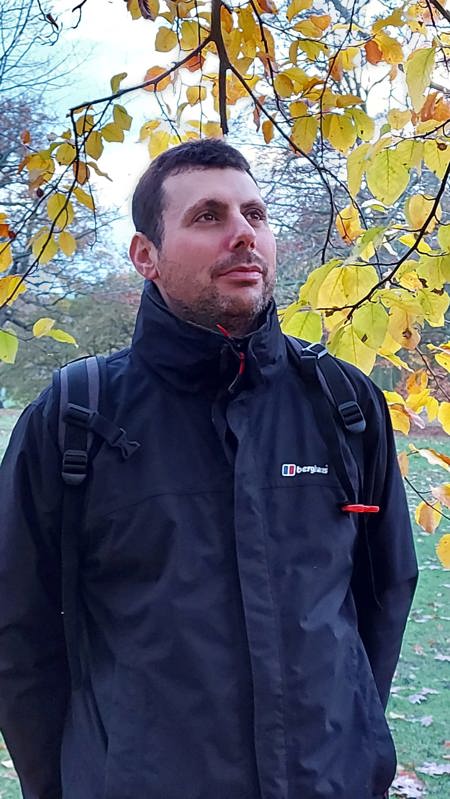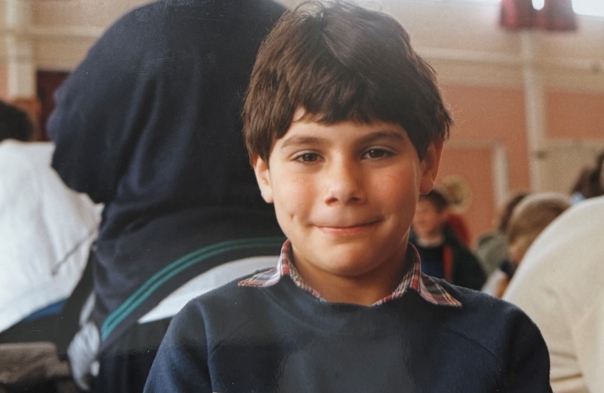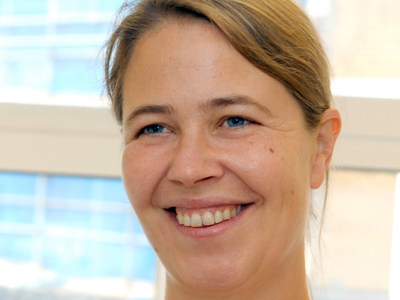
Inquest concludes death of Joshua Leader, 35, was suicide contributed to by neglect at Essex Partnership University Trust
An inquest into the death of 35-year-old Joshua Leader, has concluded that his death was suicide contributed to by neglect at Essex Partnership University Trust (EPUT), who were responsible for his care.
Posted on 11 July 2024
The coroner said there was a gross failure to provide basic care, with no detailed safety plan to ameliorate Joshua’s suicide risk.
There were significant missed opportunities to develop a robust and thorough care plan, there was insufficient action to robustly address concerns and deterioration posed by him not taking medication.
A decision not to admit Joshua to hospital two days before he died contributed to his death.
Joshua, of Wivenhoe in Essex, died just two days after his family had taken him to the Lakes Mental Health Hospital to ask for an urgent admission due to their serious concerns about his safety after repeated remarks about ending his life. This crisis point was reached after months of the family trying to secure adequate care and treatment for Joshua.
Despite Joshua’s willingness and agreement to inpatient care, this admission was refused and his family feel had care been taken to assess him properly, he would be alive today.
The nurse who refused to admit Joshua to The Lakes told the inquest that he had made a basic failure of care, he had made the wrong decision, broke his own processes and admitted he was disgusted with himself.
Joshua’s family told the inquest that they felt he had been failed by EPUT and that they were not listened to and were treated as a nuisance by EPUT professionals, despite their longstanding involvement and consent for them to be contacted about his care. They believe that Joshua was not on the medication he needed, despite attempts over many months to get him back on to anti-psychotics.
The court heard that Joshua had no proper care or safety plan despite repeated attempts over 12 months to get one put in place and repeated attempts to have him admitted for inpatient care were refused. An independent expert, Dr Mynors-Wallis, told the Court that he could not find any clear formulation of the risk Joshua presented in his notes, and that “without a clear formulation of risk, you cannot plan how to reduce it”.
Joshua was found dead in his flat on 24 November 2020. He had a long history of mental illness, including diagnoses of psychosis and schizophrenia, and at the time of his death was living in the community under the care of EPUT psychosis team.

His common symptoms of psychosis included a fixation on other mental and physical diagnoses, such as anxiety, which led him to stop taking his anti-psychotic medication. Joshua’s family recognised them as signs of his psychosis but the inquest heard that they were often taken at face value by members of the EPUT team, with no reference to his medical history or his family’s input, which led to them agreeing to requests to take Joshua off his medication.
Joshua moved back to Essex, where his parents live, in July 2019 and was put under the care of the EPUT psychosis team. Joshua had grown up in Essex and was previously under the care of Essex mental health services from age 16. From July 2019, his family repeatedly requested a s.117 Mental Health Act aftercare assessment and plan, which he was entitled to due to his recent detainment under Section 3 of the Mental Health Act. This assessment and plan was never put in place.
He initially coped well in Essex but by around March 2020 his family believe he had stopped taking his medication and his behaviour became very unstable, with increasing paranoia, delusional thoughts and erratic behaviour. He also started to repeatedly express suicidal intent.
His family suggested in May 2020 to the EPUT team that depot injections of his antipsychotic medication should be considered, as these were long-lasting and could stabilise his symptoms. In early September they requested an urgent appointment with Joshua’s psychiatrist but were told there wasn’t one available until the end of the following month, and in any event this was cancelled at the last minute. Depot medication was not actively discussed with Joshua until October 2020, which the independent expert stated “should have happened sooner” given Joshua was not taking his medication.
By then Joshua’s mental state deteriorated further and he repeatedly talked about ending his life. On 19 October 2020 Joshua was referred to the EPUT Home First Team and while under their care he attended an assessment by a consultant psychiatrist where he denied having psychotic symptoms and asked to be taken off anti-psychotic medications, which was agreed by the psychiatrist. This was despite Joshua’s family raising severe concerns with the psychiatrist about the negative impact this was likely to have on Joshua.
By mid-November 2020 Joshua had been convinced to go back onto anti-psychotic medication by his family. After a family friend, a professor of neuropsychology, wrote to the EPUT team Josh was contacted by his psychiatrist but despite repeated requests from his brother to be involved in his care, he was not informed of the meeting and Joshua denied psychotic symptoms and that he needed antipsychotic medication so no prescription was given.
Joshua’s brother, Dan Leader, told the inquest that on 22 November 2020 his family became so concerned for his safety that they took him to The Lakes Mental Health Hospital for an urgent assessment and hoping for an admission. Joshua received an assessment by a mental health nurse who concluded that he was at immediate risk and should be admitted to hospital, he agreed to this and his family welcomed this decision. However, a member of the EPUT Home First Team then joined the consultation and took a different view which led to him not being admitted.
The nurse who refused Joshua admission told the inquest:
“I can sit here and say now with the benefit of hindsight, I made the wrong decision, I should have admitted him to hospital.”
He was also unclear whether he read any of Joshua’s medical notes before conducting the assessment about whether to admit him.
The nurse admitted that during this assessment he “broke my own processes. I don’t know why”.
He admitted that he was “kind of disgusted with myself” because of the plan he outlined to be taken following his refusal to admit Joshua to hospital, a plan which he admitted did not outline anything other than an intention to update the care coordinator, and which did not include safety netting. The nurse admitted that this was a very serious failure on his part to provide basic care.
On 24 November Joshua’s family were told that Joshua would finally receive an assessment by his psychiatrist the next day. However he was found dead later that day.
The coroner said Joshua’s psychiatrists took insufficient action to robustly address their concerns and the deterioration posed by him not taking medication consistently. They took insufficient action to develop a robust and thorough care plan or make a clear and appropriate formulation of his risk. Specifically, there was a serious failure to discuss with Joshua depot injection at a much earlier time.
The Coroner found that the decision not to admit Joshua on 22 November was erroneous and contributed to his death. The nurse who conducted the assessment failed to appropriately prepare for assessment, so did not appreciate Joshua's history of non-compliance with medication. The Coroner found this was an obvious and conspicuous missed opportunity.
Joshua’s brother, Dan Leader, said on behalf of his family:
“We can only hope that Joshua’s inquest has shed a light on the deplorable way we believe families are treated by the EPUT team and that they will urgently review how they involve patients’ families in their care and how their concerns are considered and communicated between professionals responsible for an individual’s care. Our family’s primary wish now is that lessons are learned from Joshua’s death and that clear actions are taken as a result.”
As part of the pen portrait read out in Court, Joshua’s brother, Sam Leader, said:
“Joshua was a much-loved son, brother and father and his loss has left a chasm in our hearts. He loved his family and we loved him. His goofy, seismic laughter seemed to rise up from the ground he stood on. He was an excellent and graceful dancer, self-taught pianist and enthusiastic cook with deep and varied interests that ranged from Brutalist architecture to Buddhist theology. He was constantly searching for ways to heal himself and he was often crippled by his extreme sensitivity and empathy for others. He is deeply missed and we hope that his death will result in changes that save other families from such pain and suffering.”

Merry Varney, partner at law firm Leigh Day, added:
“The inquest process provides bereaved families with the opportunity to ask questions to those responsible for the care of their loved one and obtain some accountability for acts and omissions they believe caused or contributed to the loss of their loved one. Joshua’s family struggled to get their voice heard while Joshua was alive and they welcome HM Coroner’s strong findings that Joshua did not receive the care he should have done from EPUT and that those failings contributed to Joshua dying through suicide. The importance of listening to and involving families in the care of people with mental illness was stressed by the Court’s independent expert and is too often a failing families raise with us after losing a loved one.”
Tom Stoate of Doughty Street Chambers is counsel.

Merry Varney
Merry is a partner in the human rights department and head of the Leigh Day inquest group

Human rights
If you believe your human rights have been denied our human rights and civil liberties team is one of the leading teams of practitioners in this specialist area in the country.

A lack of independent advocacy contributed to a 22-year-old mother taking her own life after her baby was taken into care, an inquest has found
The lack of an independent advocate on a regular, consistent and continuous basis for a 22-year-old mother whose baby was taken into care contributed to her decision to take her own life, an inquest has found.

